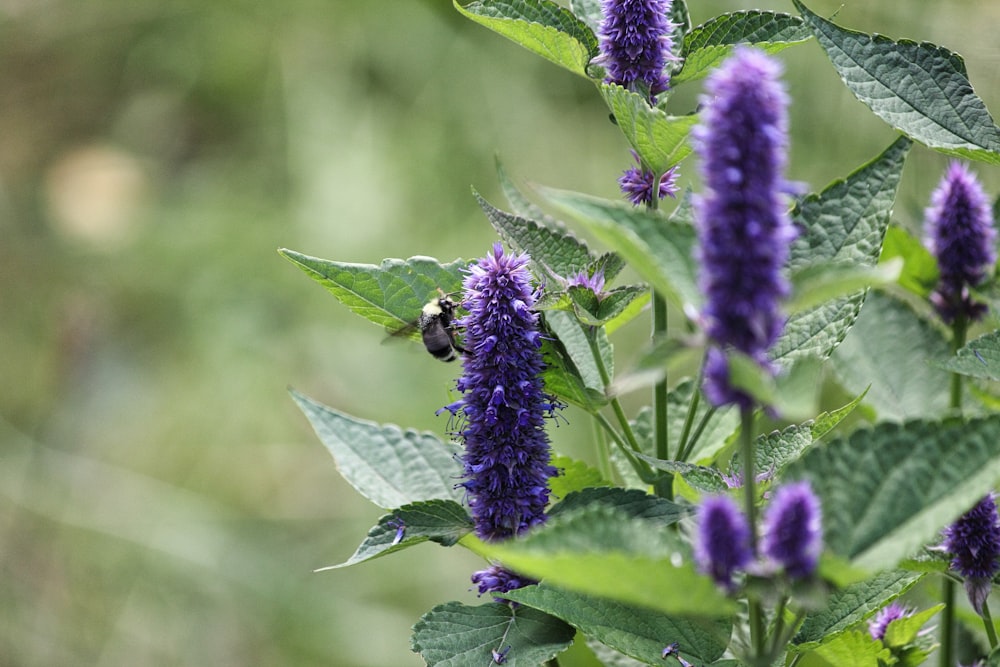Hyssop Tea Benefits.
Hyssop tea benefits: Is your immune system feeling a little bit under the weather? Have you been feeling tired, run down and worn out? It might be time to give hyssop tea a try. Hyssop is a herb that has long been used in traditional medicine for its ability to strengthen the immune system and fight off illness. It can also help reduce inflammation throughout the body, making it perfect for people who suffer from arthritis or other types of joint pain. This blog post will explore some of the health benefits of drinking hyssop tea on a regular basis.
What is Hyssop tea?
Hyssop tea is a type of herbal tea made from hyssop leaves. The ancient Greeks and Romans used hyssop as a medicinal herb, but it was not until the 20th century that researchers began to fully understand how powerful this plant truly is. Over time, studies have shown that drinking this tea can help reduce inflammation and reduce the severity and frequency of colds, flu and other illnesses. It also has a slight minty taste!
Plants and herbs to grow in your garden
Hyssop tea benefits are huge, it is derived from the leaves of the hyssop plant, is celebrated for its aromatic flavour and medicinal benefits, including respiratory health and digestive support. Growing hyssop in your garden allows easy access to this beneficial herb, alongside other therapeutic teas you can cultivate at home. Chamomile, for instance, is another excellent addition to a garden tea repertoire; known for its calming effects, it can help reduce stress and promote a good night’s sleep. Mint, with its invigorating scent and taste, not only makes a refreshing tea but also aids in digestion and relieves symptoms of irritable bowel syndrome.
Lastly, lemon balm, part of the mint family, offers a mild lemon aroma and has been used to ease anxiety, improve sleep, and enhance cognitive function. Planting a selection of these herbs provides a natural, chemical-free way to enjoy their health benefits and the pleasure of brewing your very own garden-fresh teas.

Hyssop Plant
The hyssop plant (Hyssopus Officinalis) is a perennial herb that can reach up to three feet in height. It has long, pointed leaves and purple or pink flowers that are sweeter smelling than the leaves themselves. Harvesting of this plant typically takes place between May and September when it’s a flowering season. The best time for harvesting is during warm weather after the morning dew has dried.
The hyssop plant is a member of the mint family and goes by many different names, depending on where it’s being grown. In America, for example, you might hear it referred to as “gum herb” or “wild hyssop.”
Other common names include Agastache (Siberia), Agastache Foeniculum or valued anise hyssop (United States), Cuban oregano (Cuba, Jamaica and Puerto Rico), hyssop Officinale or Agastache scrophulariifolia (Europe).In
The most common form of the plant is known as “Agastache rugosa” and it grows on long stalks. Other variants of the plant include “A. Foeniculum” and “A. scrophulariifolia.”
Hyssop has been used for centuries to treat a variety of ailments, but it wasn’t until recently that researchers began studying its benefits in more detail than traditional medicine ever could. The hyssop leaves are most commonly harvested within the summer months and dried for later use. To have it as a tea it must become dried herbs first!
How to Make Hyssop Tea

The best way you can make your own hyssop tea is to combine one teaspoon of dried hyssop leaves with a cup of boiling water and then steep it for at least five minutes. Some people like their tea strong, so they add up to two teaspoons instead. Those who prefer weaker teas can simply use less than a teaspoon and steep the ingredients for a shorter period of time.
If you’re feeling under the weather, you can drink this tea at any point throughout the day or night because it’s not known to cause drowsiness. However, if your symptoms are more severe, make sure you let them subside before drinking this type of herbal tea. This will ensure that you’re getting the most out of its immune-boosting effects.
You can get Hyssop tea in a teabag but sometimes it comes as tea leaves.
What Are Hyssop Tea benefits?
The most prominent benefit of hyssop tea is that it helps the immune system. This makes it a great prevention method against colds and flu, but its anti-inflammatory properties can also help reduce symptoms if you do come down with respiratory infections.
Mullein flowers are known to have some of the strongest antiviral effects in all herbal tea varieties, but hyssop tea also includes echinacea and elderberry. While these herbs don’t get rid of colds or flu on their own, they make it much easier for the body to fight off infection while simultaneously reducing discomfort levels.
If you don’t have any cough syrup around the house you can use Hyssop tea to help soothe your cough. If you have a sore throat hyssop tea can also help soothing sore throats.
1. Regulates Body Temperature
One of the lesser-known benefits is that it can be used to regulate body temperature. Some people drink this type of herbal infusion when they’re feeling too hot, while others use it in an attempt to lower their high temperatures a few degrees. By drinking a cup or two every day you’ll help your body reach its ideal temperature more quickly.
2. Weight Loss Support and Curbs Appetite
If you’re looking for a natural way to reduce your weight, consider hyssop tea. It contains no caffeine so it won’t make you jittery or cause any other harmful side effects, but the antioxidants found in this type of herbal drink will help burn fat and boost your metabolism slightly.
Not only does drinking two cups of hyssop tea a day make it easier to lose weight, but it can also help reduce your appetite. If you’re trying to slim down and have been struggling with cravings or emotional eating, in particular, hyssop tea is the perfect addition to any diet plan because of its ability to suppress hunger pangs.
3. Eases Cough and Cold Symptoms
Hyssop tea can also be used to ease various respiratory problems, including congestion and bronchial spasms. If you suffer from these types of conditions on a regular basis, drinking this herbal drink regularly will help keep your symptoms in check so that they don’t get worse when it comes time for your annual flu shot or other forms of treatment.
4. Asthma Support
Hyssop tea is often used to treat asthma because it can reduce inflammation and swelling in the bronchial tubes. This type of herbal infusion has been shown to be as effective as some prescription medications but without any side effects or other potential complications that come along with taking drugs like corticosteroids on a regular basis.
If you want to find out if hyssop tea is right for you, talk with your doctor or another medical professional before trying it. While there are no known interactions between this type of herbal drink and prescription medication, the soothing effects that come along with drinking hyssop tea may interfere with any other treatments you’re currently undergoing.
5. Treat Skin Irritation and Itching
One of the benefits also include antifungal and antibacterial properties, so it’s great for treating minor skin irritations like acne outbreaks or itching caused by eczema. Some people even claim that drinking this herbal infusion has helped them lose weight because they feel full after consuming only a few sips of tea.
6. Control and Manange Blood Sugar
One of the benefits of hyssop is that it can aid in controlling blood sugar levels. In a 2003 study, researchers have that hyssop extract administered before a high carb food prevents blood sugar spike. How? Antioxidant compounds hyssop leaves inhibits the digestion of the carbohydrate.
7. Eliminate Gut Discomfort
The high antioxidant levels and the soothing nature of the tea also provide digestive benefits. It also helps neutralizes stomach acid to prevent gastroesophageal reflux disease (GED).
8. Ease Menstrual Cramps
Fresh hyssop tea also helps with pain and discomfort associated with menstrual cramp because its anti-inflammatory properties. Research also shows that drinking this tea also helps with urinary tract infection (UTI).

Side Effects of Hyssop Tea
While hyssop tea does have a number of benefits, there are also some side effects to consider. For example, if you’re on any type of blood-thinning medication such as aspirin or warfarin, then hyssop tea could interact with these drugs and make them less effective at preventing strokes and heart attacks.
Additionally, hyssop tea can cause some side effects such as headache, nausea and vomiting, stomach irritation and diarrhoea. While these symptoms typically only last a few days or weeks it’s important to be aware of them so that you can stop drinking hyssop tea if they do occur on a regular basis.
Since hyssop tea can lower blood pressure, it’s not safe for anyone who is already suffering from hypotension or other related conditions. It should also be avoided by pregnant women because of its ability to slow blood pressure and the flow of breast milk.
If you normally have high blood pressure Hyssop tea can help you lower it!
Other Ways to Get Health Benefits of Hyssop

Drinking tea isn’t the only way to experience the hyssop benefits. Hyssop essential oil is also a great alternative, and you can use it topically or inhale it through aromatherapy for an even more intense boost of energy that lasts longer than drinking a cup of herbal infusion. Taking anise hyssop essential oil also helps with digestion and ensures optimal digestive tract health by neutralizing the stomach acid.
There are many different varieties of, including Spanish hyssop and French hyssop. Both of these oils have very similar benefits to the tea but tend to be more expensive because they’re less common than other types of this herbal remedy.
Final Thoughts
When you drink hyssop tea, it can help regulate your body temperature and suppress hunger. It is also good for treating respiratory problems such as congestion and bronchial spasms. A sore throat will no longer be a problem but make sure to talk with a doctor before drinking this type of herbal infusion if you are on any prescription medication or have an existing medical condition. There may be interactions that could make the other treatments less effective so please consult a professional first before trying out hyssop tea!












